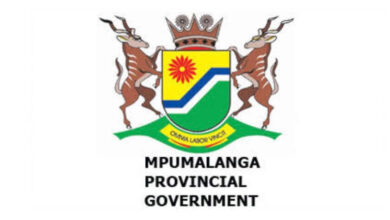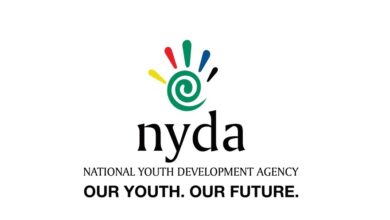HESA Interview

Life after matric interview with Mr Abbey Mathekga from HESA (Higher Education)
Youth Village: Tell us about Higher Education of South Africa and its background?
Abbey Mathekga: The Higher Education of South Africa is the co-ordinating body of all 23 public Universities in South Africa and was establish in May 2005 through the measure of committee of University principles and the measure occur of Technicon been restructured into Universities of Technology.
Youth Village: Tell us about the Principle of Higher Education of South African policy frame work?
Abbey Mathekga (HESA) : Higher Education doesn’t do policies but co-ordinates the comment and feedbacks from Universities and consolidate them into sector response or position on the particular policy matter in addition HESA support both Department of Basic and Higher Education and Training in development relevant policies that are meant for Universities such as minimum admission requirement policies
Youth Village: What are your sentiments with regards to Matriculation’s results for 2011?
Abbey Mathekga (HESA) : As Higher Education of South Africa we’ll like to congratulate the class of 2011 and further underscore the fact that Universities are not the only institution of Higher learning that they should go to but they are study opportunities at F.E.T colleges as well, and the country need artisans and technicians in various fields such as plumbing, carpentry and mercenary and so forth, receiving 70.2% in pass rate this year surely will go a long way in assisting the country in get a relevant skills and man power that the country is looking for. In social context education seem to be an equalizer and if you look at the latest information from department of basic education the gin co-efficiency is narrowing which means education is succeeding in closing the gap amongst South African families therefore education is serving its purpose as an equalizer, this can’t be done overnight it’s something that will take time however there are indications there is a positive move towards equalizing that has been brought about by education its self.
Youth Village: Why are Universities Independent from the Government?
Abbey Mathekga (HESA) : Universities are autonomies and their autonomy its determine by higher education act however the universities are also subsidise by the government therefore they are obliged to comply with the legislation and most importantly is that universities have got a big premium that have been placed on them which is accountability and responsibility to government and to public at large since the funding comes from physicals as such.
Youth Village: What do you think can be done to rectify such imbalances?
Abbey Mathekga (HESA) : If you’re referring to inequitable provision of education proceeding from promise that inequality it’s a permanent feature of every society in the world it goes without saying that quality education provision will always mirror the class and socio economic feature of our country, so what has been done so far can go a long way in assisting communities to reach that kind of balance in provision of quality education. My view is that education is closely linked the economy of the country where by you find affluent people who’ll be better placed to pay for expensive schools and things like that whereas people from poor socio economic status would go to government schools with less resources, however it’s important to know that shreds have been made as the government has established various categories of schools such as your no fees schools which are intended to cater for people from poor families as well as feeding schemes for children who don’t have a good meal at home could have a meal a day at school such endeavours would help to bring the equitable provision of education in the whole country.
Youth Village: Has the Student enrolment rate increased over the years?
Abbey Mathekga (HESA) : The student enrolment exponentially increased since 2009, for instance in 2011 the recent paper that was launched by minister of higher education last week it says we had 899 12000 student that are registered in higher education that shows an exponential increase in number of student who have registered institution of higher learning and that translate into 16% participation rate in all universities in South Africa.
Youth Village: Are there measures taken to resolve the issue of lack of funds for students and academic development initiatives to support underprepared students who tend to be largely black and originate from rural societies?
Abbey Mathekga (HESA) : They are measures and efforts that have been put in place for e.g. universities have bursary themselves and loan schemes from government there’s the national student financial aid scheme that is made to assist student who comes from poor families but who are performing well at school and those are the measures that are put in place to assist learners who deserve to go to higher education to assist them to further their studies in universities.
Youth Village: Can any student get a loan?
Abbey Mathekga (HESA) : They are some rules one important rule is that there is a main test that is conducted for a student to qualify for instance your parents have to be unemployed or their joined income reaches less than R50.000 minimum you will qualify one, and it’s a test used by universities as determine by government policy to determine the level of who should get that financial assistance because the money is not enough, the NSFAS is not enough it only help student mostly to pay for tuition fee but not residence fee in 2011 the minister made a commitment to increase the funding to cover all the cost, it’s also important to note that the is divided into two if you perform well the other potion will be given to you as a bursary and you’ll only repay a certain amount and the aim is to get the bursary after studying get a job then pay it back to help others to get in the bigger picture.
Youth Village: Sometimes a student struggles to get a job after graduating but the NSFAS still changes certain amount of interest every month so what happens in that case?
Abbey Mathekga (HESA) : The question of employment it’s a challenge across the world it’s not only a South African phenomenon but the minister of higher education has reduced amount of interest that is been build to your account up until it’s quite low and very affordable to a certain extend those are the measures that the department and government to put in place to try and assist the students.
Youth Village: What can you say about the literacy rate in under privileged communities?
Abbey Mathekga (HESA) : The literacy rate in the under privileged communities is not necessarily very low to a certain extend but it is important for the government and other organisations to improve the literacy level by bringing in projects that would assist abet adult learners to get into education programs learn how to read and write and things like that, that would help to improve the literacy level in under privileged communities but to say the under privileged communities are completely illiterate it’s a dangerous statement as in my view their not completely illiterate but they could have a certain level of literacy, it is important that government and other organisation should revitalize programs that are aimed at improving the adult education and training programs.
Youth Village: What message do you have for aspiring learners who are planning to go to tertiary this year or next year?
Abbey Mathekga (HESA) : The most important message we want to put across to students is to work very hard on your studies but what is important is to also plan I’ll call upon particularly your grade 12 learners that they should start planning now, what is it that they’ll want to do next year and they shouldn’t wait for their grade 12 results and then rush to universities but they should start now check your subject combinations, check the minimum requirements in the program that you what to pursue at the university and make sure you apply on time and once you have don’t that know that you’ll have a brighter future at the end of the year.




